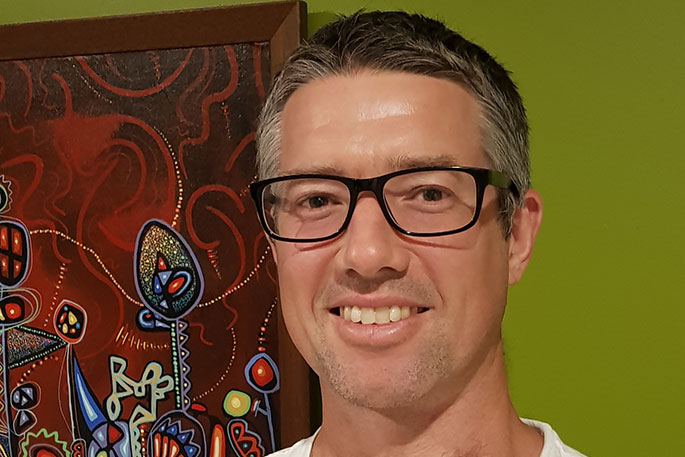Wednesdays are a short day for Tauranga insurance executive Ben Rickard. He clears his desk by 2.30pm.
But it's not to play golf or go fishing. He's off to a tutorial – and not for an MBA. He's learning Te Reo Maori, and on company time.
'I am Pakeha,” says Ben. 'It's part of my culture, part of OUR culture, so it's important to me to have a broader understanding of it.” And important, the numbers suggest, to more and more New Zealanders.
'I am hoping New Zealand is maturing in its attitude to Te Reo,” says Heddell Raerino, manager of Toi Ohomai Institute of Technology's Te Kura Maori.
'I am surmising New Zealand is seeing value in the language as a part of our present and especially our future national identity.”
The measure of that value is the popularity of Te Reo Maori Courses. There's been spectacular growth. The Auckland University of Technology has been forced to cap enrolments for its courses. UNITEC was caught off guard over demand for Te Reo. Its 10-week evening course has enjoyed enrolment increases from 1200 to 1500 in just three years.
And closer to home, when Toi Ohomai campus at Windermere offered up a free course offering basic greetings, pronunciation and talk of families and towns, there was enough interest to fill two classes - one at Windermere and one in Papamoa.
'To me, part of this is due to the greater role the Maori economy is playing in New Zealand society,” says Te Kura Maori's Heddell Raerino. 'It's also about the business opportunities and benefits that having a solid grasp of Te Reo brings.”
Te Reo Maori also seems to be part of the assimilation process for new New Zealanders. 'There appears to be a genuine interest in Te Reo from recent arrivals to Aotearoa. I have had immigrants say if you go to France you should learn French, Spain Spanish, likewise Aotearoa – you should learn Te Reo Maori.”
Ben Rickard can understand the practicality of learning a language and that as a young person, there are benefits when travelling and working overseas, whether its Spanish, French, German, Japanese or Arabic.
'We are fortunate we can get by, because English is a global language,” says Ben. 'But on a professional footing, all job applications in Europe ask what level of other languages you speak – basic, intermediate or advanced – because they need employees who can liaise with clients in other countries.”
Te Reo Maori, he says, wouldn't help – not in a practical sense. 'Although learning a second language demonstrates a cognitive intelligence, and for an employer, someone speaking two languages is better than one, regardless of what the second one is.”
Ben says in New Zealand, Te Reo does now have a practical application in a range of businesses. 'Probably quite small, niche businesses. But to be fair, speaking Spanish, French or whatever in New Zealand would also only have an application in small, niche export-orientated businesses.”
It's only going to help to a large degree if people take their language skills overseas. 'And should we be encouraging that? Teaching our kids Spanish or French so they can bugger off?”
He says some languages may have economic importance, but Te Reo also has cultural importance. 'It is part of us and it's a beautiful language.” And what he has realised after one module of his study, is Te Reo isn't so much learning words and language but a broader understanding and appreciation of a culture and a people.
And it's not just Pakeha like Ben Rickard embracing Te Reo Maori. ”We have students who have Maori grandchildren attending kohanga and kuru kauapapa or immersion schools,” says Heddell Raerino. 'They want to support their grandchildren with their language acquisition. They also want to understand the grandchildren when they speak Te Reo.”
Ben Rickard says learning Te Reo helps to understand Maori perspectives of attachment to land, history and ancestry. 'I felt it for myself. I thought wow! I wonder, what is my mountain? What is my river? What are the aspects of the land that are important to me?”
Beforehand, he hadn't thought about these things - perhaps the beach he was at every year growing up, or the Kaimai Ranges they drove over to see family in Matamata. This could all be leading somewhere.
'I would love to get to the point where, on Waitangi Day, both Pakeha and Maori could go to the local marae and celebrate Waitangi Day – an occasion where Pakeha don't feel isolated.
'Having a marae in the community is a fantastic way for people to engage.”
After just one module of Te Reo Maori and another beckoning, this insurance executive says his experience has given him a sense of local community. 'We might not have the ancestry, but it's a very welcoming culture and we could all be made to feel part of what essentially is OUR culture.”
Te Kura Maori at Toi Ohomai Institute of Technology is running more courses this year and is now taking applications. 'Classes sit between 16 and 25 students,” says Heddell Raerino. 'If numbers increase beyond this, then we will look at putting on further classes.”



1 comment
why
Posted on 25-02-2018 11:15 | By Captain Sensible
yawn.............zzzzzzzzzzzzzzzzzzz....why does anyone think people are interested?
Leave a Comment
You must be logged in to make a comment.